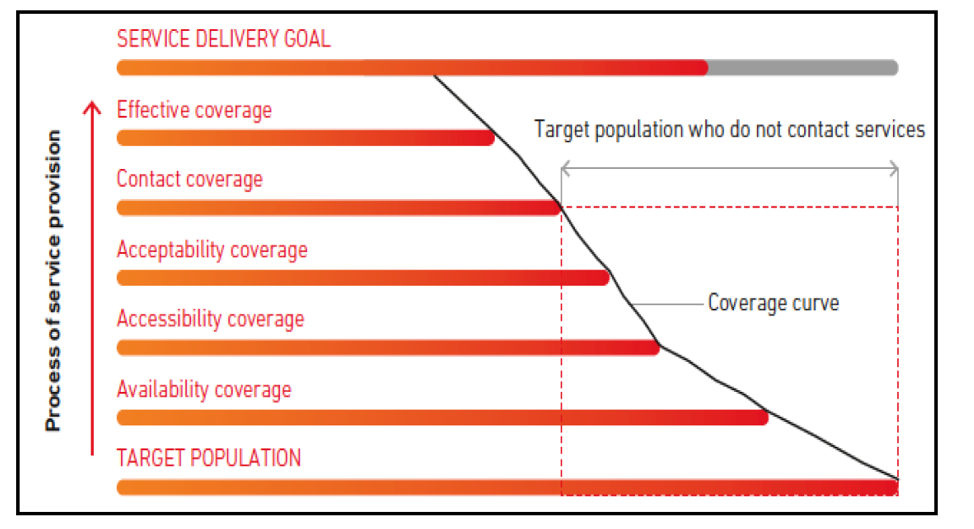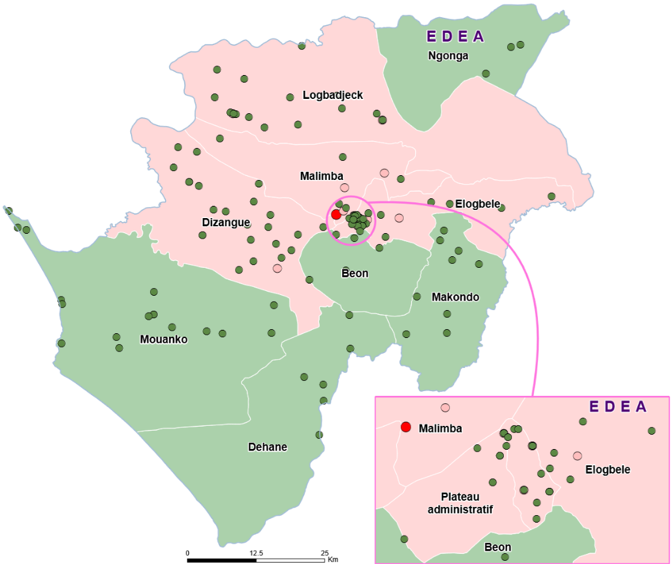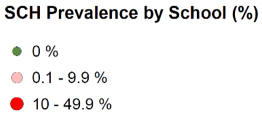
Several COUNTDOWN members attended the Coalition for Operational Research on Neglected Tropical Diseases (COR-NTD) meeting in October 2018. COR-NTD is an alliance of researchers, programme implementers, donors, and advocates with the shared goal of optimizing NTD control and elimination. The meeting highlighted many urgent topics related to how and when to shift strategies to tackle NTDs with more precision and better treatment/intervention coverage, despite implementation challenges.
In Africa, several national NTD programmes are achieving scale-up of preventive chemotherapy (PC) with better access to medications and annual treatment coverage. However, progress against each NTD can be uneven. For example, certain populations remain vulnerable, overlooked, and left behind. Part of COUNTDOWN’s mission is to find out why this is happening, how to ensure better access to treatment, through making the most of limited resources. To improve programme implementation and turn the tide against NTDs in some of the remaining strongholds of NTDs, COUNTDOWN researchers presented new evidence from ongoing research.
Embedding social science methods into a national NTD programme
The first step in improving NTD programme coverage is to ask, ‘who is being left behind, and why?’ For example, mass drug administration (MDA) with a combination of deworming medications, aims to kill the parasites that cause schistosomiasis, onchocerciasis, lymphatic filariasis, and soil-transmitted helminthiasis. The delivery of effective medications is a pro-poor intervention often linked to the third Global Goal, universal health coverage. Laura Dean delivered a presentation in the session, "Aligning NTD programmes with Universal Health Coverage: lessons from research" on the problem of increasing coverage of an intervention already at scale to reach non-covered individuals and populations.

Critical analysis of programme areas. Image courtesy of Laura Dean
NTD programmes need to make the focus on equity explicit and plan their activities with the goal of reaching the most marginalized. Participatory Action Research (PAR) cycles are an approach COUNTDOWN used in Liberia and Nigeria to leverage community knowledge to find out who is missing MDA and how to be more inclusive. Getting community members to help tailor programme delivery according to local needs and desires can overcome contextual disadvantages like working with a hard-to-reach population. The approach is particularly well suited for devising strategies for overcoming misconceptions and fears about MDA. If this approach is sustained, the NTD programme will become increasingly agile and adaptable. Researchers are working to establish champions of the method who will ensure it is included in MDA planning and activities.
|
Send out letters to the LGA Chairman, community leaders, religious leaders like the Pastors and Imams, and influential people like youth leaders. Letters indicate date and time of advocacy visits. |
|
Advocacy visit to these leaders on schistosomiasis and STH. |
|
Sensitising owners/operators/leads and placing posters in worship centres, football viewing centres, boreholes, schools, motor parks, suya and waina joints, bus stops, and grinding mills. |
|
Road shows and practical mobilisation of the communities before and during mobilisation using the IEC materials, radio jingles and television adverts. |
|
|
Examples of activities using the PAR approach.
Re-thinking who needs PC treatment
Even with revised international guidelines being promoted by WHO from recently conducted randomised controlled trials, millions of women in Africa continue to be excluded from praziquantel treatment such that the burden of female genital schistosomiasis (FGS) goes unchecked. Reasons for this are multifaceted: from shortages in praziquantel supplies to exposing knowledge gaps in the peripheral health system. These latter include insufficient medical education and training of primary health care providers who remain oblivious to FGS etiology as well as confusion within afflicted communities. For example, many mistakenly interpret blood in urine, a cardinal sign of FGS, with that of sexually transmitted diseases. Detailed discussions and exploratory solutions to tackle FGS were guided by Professor Russell Stothard and Dr Jutta Reinhard-Rupp within the session organized by Dr Goylette Chami delving into better behavioral interventions against NTDs. Recent COUNTDOWN research in Ghana has shown that adolescent girls with FGS are being unduly stigmatised for promiscuity.
New mapping technique helps identify where to focus intensive efforts
Professor Louis-Albert Tchuem Tchuenté chaired the session “Shrinking the map for Schistosomiasis.” Geospatial mapping has long been employed to conduct surveillance and plan NTD programme activities. However, schistosomiasis control through treating school-aged children with PC is usually planned by surveying a limited number of schools in a region or district and then either treating, or not treating, all the schools in that geographic area. New evidence from COUNTDOWN demonstrates that mapping NTD prevalence at a more granular level would result in more efficient resource allocation by targeting only schools and/or communities that have an infection prevalence in the 10% threshold. This methodology is called precision mapping.


Precision mapping of schistosomiasis gives high-resolution information at the local level and allows for a better and rational utilization of praziquantel and available resources
In a recent study in Cameroon (pictured above), this method would reduce the overall number of treatments even if more ambitious targets for schistosomiasis elimination are adopted. In the session, participants discussed the need for new evidence-based guidance and the need for further operational research to develop it.
Fluid contexts call for partnerships with communities and experts in other disciplines
COUNTDOWN’s Dr Rachael Thomson and Dr Sunday Isiyaku led a panel on community engagement in emergent contexts such as border regions, urban areas, and conflict zones, where NTD programmes must rely even more on the goodwill and participation of communities to conduct MDA successfully. Dr Theresa Hoke explained how a research uptake strategy can engage communities from start to finish so they experience increased ownership in the NTD programme.
Communities are a unique stakeholder in NTD research because some community members are involved at every stage of the research process, including using the research findings. Luret Lar M.D. of COUNTDOWN’s Nigeria team spoke more about how this philosophy was applied in Nigeria. Following a situational analysis that uncovered specific needs related to community engagement, several participatory methods were employed during PAR cycles, including transect walks and community mapping, a discrete choice experiment with community drug distributors, mock training cascades. Participatory approaches like this group exercise are helping communities identify solutions to sustain participation with the NTD programme. Another approach COUNTDOWN has used is to learn from other disciplines. Anthony Bettee, from COUNTDOWN Liberia, shared how they used research to develop a new communications strategy, leveraging the expertise of the National Health Promotion Department.
In conclusion, reaching programmatic targets often means extra effort in finding those who need treatment, and more precise identification of at-risk populations and geographic locations. Then, programmes must go to those communities that are most in need and work with them, using fit-for-purpose research methods. Increasing equity in NTD control means considering other paradigms besides the current methodologies for carrying out treatment and prevention activities. A key challenge at COR-NTD arises in being a broad forum bringing together researchers and implementors spanning the major strategies for NTD control. The meeting has done an outstanding job highlighting common issues and questions that may be answered with further research applying techniques and perspectives from a range of disciplines. The diverse COUNTDOWN Consortium is playing an important role in discussions that will guide this progression towards more equitable and sustainable control of NTDs in Africa.
